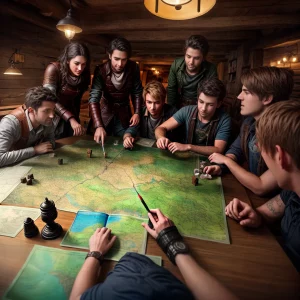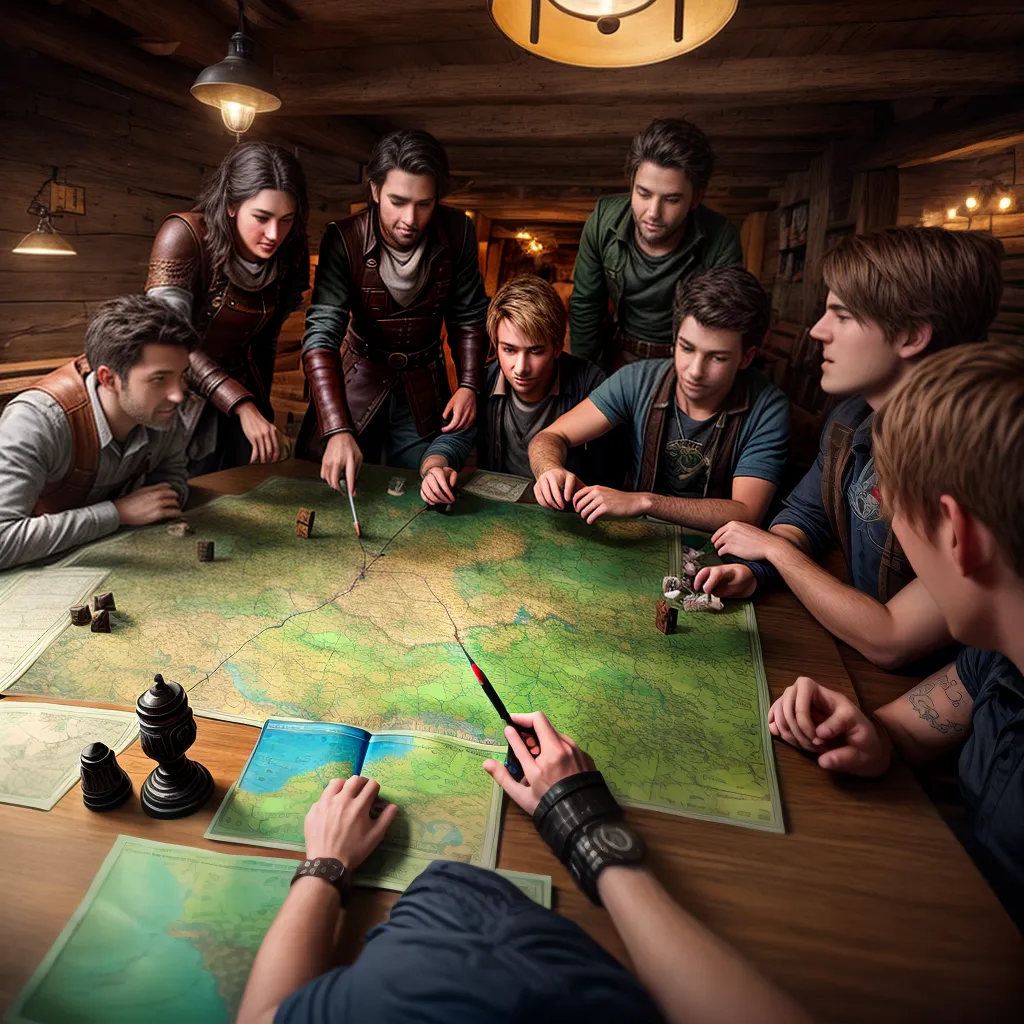
In recent years, role-playing games have gained more and more popularity. However, the question arises: do they have influence on our creativity and imagination? This is precisely what we intend to find out in this article.
What are roleplaying games?
Role-Playing Games, or Role-Playing Games, are a genre of electronic games that allow players to assume the role of fictional characters in an imaginary world. Players are given the freedom to create and develop their characters, make decisions that affect the plot, and interact with other players or the game's environment.
In roleplaying, players often take on the role of heroes or protagonists, embarking on an adventure that may involve exploring dungeons, solving puzzles, fighting enemies, and undertaking quests.
Roleplaying games fall into different subgenres, such as action RPGs, in which combat is real-time and emphasized, strategy RPGs, in which planning and decision-making are fundamental, and MMORPGs (Massively Multiplayer Online Role -Playing Games), which allow a large number of players to interact in a shared world.
In addition to video games, roleplaying is also a popular format in tabletop games such as Dungeons & Dragons, where players come together to tell stories together, with a game master driving the narrative and players taking on specific roles.
How roleplaying games influence creativity and imagination:
Roleplaying games have a significant impact on players' creativity and imagination. They provide an environment rich in stories, characters and imaginary worlds, encouraging players to explore and create within these scenarios. Here are some ways role-playing games influence creativity and imagination:
Character creation:
Role-playing games often offer extensive character creation options, allowing players to customize physical traits, abilities, backstory, and personality. This encourages creativity as we encourage players to develop unique and engaging characters.
Decision-making:
Many roleplaying games feature choices that affect the plot and the course of the game. Players are challenged to make strategic decisions that shape the narrative. This freedom of choice sparks the imagination as we encourage players to explore different avenues and consider the consequences of their actions.
Exploration of imaginary worlds:
Roleplaying games often feature vast, detailed worlds filled with unique landscapes, cities, creatures, and cultures. Players are encouraged to explore these environments, discover secrets, and interact with NPCs (non-player characters). This exploration fuels the imagination as players can imagine and visualize these fictional worlds in detail.
Engaging narrative:
Roleplaying games are known for their rich and immersive stories. In this way, players are immersed in exciting plots, with twists, intriguing characters and epic conflicts. These narratives spark players' imaginations, inspiring them to create and engage with the storyline.
Social interactivity:
Many roleplaying games allow for social interactions between players, whether through massive online games, cooperative multiplayer, or tabletop games. This social interactivity encourages creativity as players can collaborate, improvise and create stories together, expanding their collective imagination.
In short, roleplaying games provide a creative space where players can develop characters, explore imaginary worlds, make meaningful decisions, and engage in engaging storytelling. These experiences spark creativity and imagination, allowing players to be an active part of building and developing compelling stories and characters.
Studies on RPG and creativity development:
According to recent research, role-playing games have been identified as effective contributors to the development of creativity. A study conducted in 2021 revealed that RPG players showed a significant improvement in their creative abilities after a period of play.
How RPG games can be used as an educational tool:
These kind of games are not just for fun. They can be an effective educational tool, helping students develop problem-solving, teamwork, and critical thinking skills. Some educators are already using RPGs in their classrooms with great success.
Roleplaying games go beyond just being games; they become a powerful personal development tool. In addition, they stimulate creativity, imagination and provide a unique way to learn and grow. With their popularity steadily growing, it is likely that we will see even more innovations and new uses for RPGs in the future.
